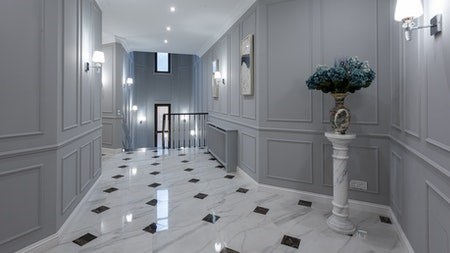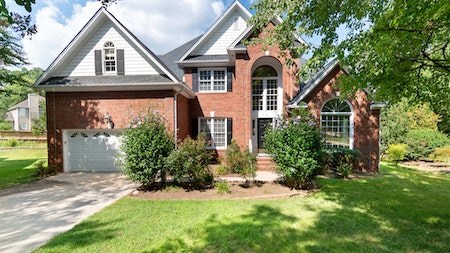Buying property is a long term investment and generally increases in value over time - despite market ups and downs along the way.
Taking a one or two year view is financially short-sighted. Instead, the best plan is to live in the home for at least five or ten years to ensure capital growth and a healthy profit when you sell.
To ensure a profitable resale, you need to look for the type of property that is most popular with the largest selection of buyers. Generally, it shouldn’t be too big or too small and should have enough rooms to suit a modern middle-income family.
Holding on
The key to making money out of your property is holding it until its value has increased to the point where you will make a profit when selling. This will also enable you to pay off a large chunk of your mortgage so that the outstanding balance doesn’t swallow up the entire gain.
First-time buyers are particularly inclined to make short-term decisions because of affordability issues. As a result, it's easy to get caught up in an upgrade cycle that starts with buying a small flat or a townhouse soon after you start working. Then, when you get married or have children a year or two later, you may feel obliged to upgrade to a larger home.
At this point, you will find that your bond repayments have only serviced the interest on the principal amount. Therefore, even though your property has increased in value, it will still be some time before you can sell at a profit. You will also have to pay for transfer fees and moving and other costs that come with buying and selling a property.
Rather than sell your first property, it is often preferable to keep it and use it as collateral on a bigger property while letting it. If the capital growth has been good, the rental yields are likely to turn it into an excellent long-term investment.
Research
Before you buy a prospective home or an investment property, start by identifying the property’s resale value. Consider the location and research the neighbourhood you are interested in before you even begin looking at possible homes for sale.
Find out if there are any zoning, development and security issues in the area. Take into consideration infrastructure changes - good and bad. For example, the Gautrain in Gauteng has made it easier for people in neighbourhoods close to the stations to commute to work further from home. This has increased the popularity of certain suburbs, which is a positive outcome. But you also need to be aware of possible negative changes such as encroaching industrialisation.
Take a good look at other houses in your chosen neighbourhood to determine the quality and standards of upkeep. It's also essential to consider access to amenities such as schools and transport as well as a particular home’s architectural appeal. These factors add value to your property, making it more saleable in future.
Location
Reliable estate agents will tell you that buying the worst property in the best location is the best way to ensure your property will gain value over the years.
Ideally, look for a home with potential that won’t cost the earth to be up to standard with the average properties in the area. Keep in mind that fitting an expensive kitchen and bathrooms won’t guarantee the highest sale price. Be practical and keep upgrades well within your budget.
Other factors to consider are the erf's size and the house – not too big, not too small. Freestanding houses with one or two bedrooms and single bathrooms tend to be less saleable than those with three or four bedrooms and two bathrooms.
Down the line
Before you sign an offer to purchase, you should try to estimate what the property you have your eye on will be worth five years from now. Take into account the location, property type and potential for growth. Also, consider your current life stage and plan accordingly for the future.
And don't lose sight of the importance of purchasing in a comfortable price range, preventing your dream from turning into a nightmare if interest rates start rising.





